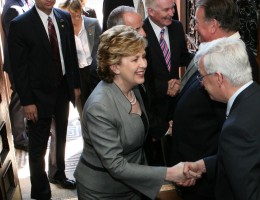Reconciliation and Development

I2UD and its staff have extensive experience in reframing urban planning and management programs to support reconciliation and development in societies and economies coming out of conflict or undergoing rapid social, political and economic transitions.
The Irish Peace Process
Since 2005, I2UD has been working in Ireland and Northern Ireland as a founding partner of the International Centre for Local and Regional Development (ICLRD). This center brings together practitioners, academics, researchers and policy makers to explore and expand the contribution that local and regional development can make to the peace and reconciliation process and improve the lives of people on the island of Ireland and elsewhere. Based in Armagh Northern Ireland, the ICLRD is a registered charity; in addition to I2UD, the core partners include the Centre for Cross Border Studies, the School of the Built Environment at the University of Ulster and the National Institute for Regional and Spatial Analysis (NIRSA) at the National University of Ireland, Maynooth. As a Boston area based partner, I2UD has facilitated linkages and exchanges between Irish policy makers and academics and the Harvard Joint Center for Housing Studies, the Harvard Business School, the Boston Foundation and the Metropolitan Area Planning Council for the Boston region.

In 2009, Ireland’s President Mary McAleese, her husband Dr. Martin McAleese and a team of delegates met with the Board and staff of I2UD to thank the Institute for its role in starting ICLRD and its continued support to the peace process on the island of Ireland. At the 2012 ICLRD annual conference, I2UD staff were acknowledged for their contributions to a precedent-setting memorandum of understanding between the cross-border local authorities of Newry and Mourne District Council and Louth Local Authorities in the Irish Border region. This agreement, which supports cross-border cooperation in the areas of emergency planning, the green economy, tourism and job creation is seen as a best practice by European Union officials. Other cross-border local authorities and senior government officials in Belfast and Dublin are seeking to adapt the model to further development in the Irish Border region. I2UD’s most recent engagement with ICLRD has been as part of research teams exploring shared services among local governments and potential applications on the island of Ireland. Learn more about our decade of involvement below.

Supporting Cooperation and Reconciliation in South Africa
In South Africa, our staff worked extensively with central and local government and communities from 1998 to 2006 to increase the quality of life and economic opportunity for lower-income residents through the South African Government’s Grant-Funded Municipal Infrastructure Program. In addition to program evaluations, executive training programs helped newly-elected councilors and appointed officials to access international best practices in urban development and build their own skills in delivering infrastructure and services to address the historical legacy of poverty and under-representation. This work was leveraged in several townships and municipalities, most recently in for example in the Lesedi Municipality in Gauteng Province, where I2UD helped formulate planning and urban design strategies to revitalize, upgrade and unify the area and take advantage of its strategic location within the larger region.

Rebuilding Local Economies and Services through Municipal Development and Regional Cooperation in Central and Eastern Europe
In Central and Eastern Europe, I2UD staff worked in Albania, Bulgaria, Kosovo, Poland and Romania to assist local governments to reshape their urban planning and management strategies to support new forms of governance and the reshaping of housing and economic development strategies during a time of rapid social, economic and political change. I2UD staff was also part of a core teaching team for a multi-year Soros-funded regional training program and led an evaluation of an integrated local development program for Roma communities in Romania. In 2011, the Board and staff of the Institute revisited these some of these programs in Romania as well as Albania in 2007.
